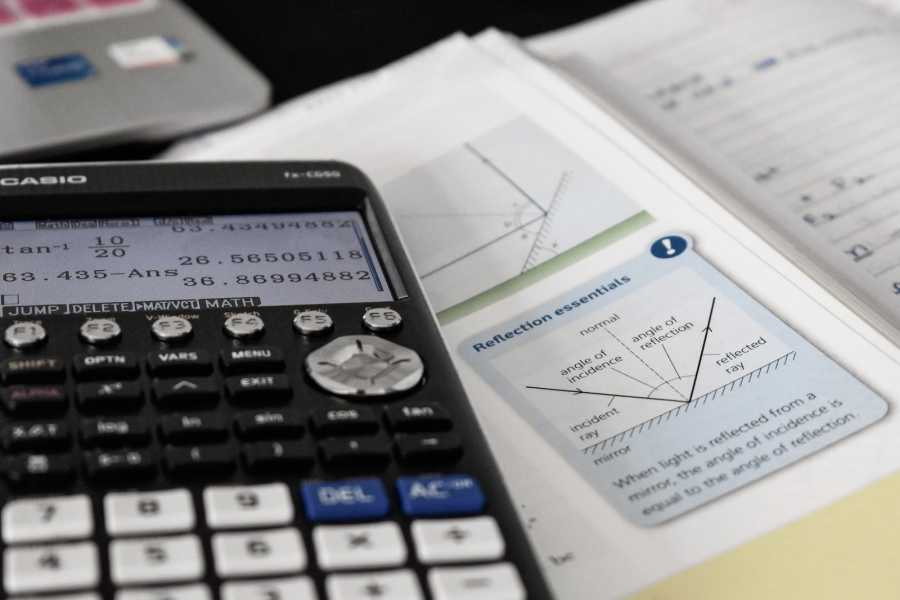Key Takeaways:
- Additional Exam Support (GCSE 2024): The Department for Education proposes providing formulae and equation sheets during GCSE 2024 exams to assist students, addressing disruptions from earlier school closures.
- Consultation Process: Ofqual is conducting a two-week consultation to gather feedback on the proposal, determining whether the additional support materials will be implemented for one more year.
- Temporary Changes: The use of support materials is considered a temporary measure, with plans to return to the standard exam format for GCSEs in 2025, assuming students have had more consistent educational support.
- Transition Back to Normal Grading (2024): No grading protections will be in place for the 2024 exams, signaling a return to pre-pandemic grading standards and providing clarity on grade benchmarks.
- Parental Role: Parents can support their children by helping them understand the changes, encouraging the use of available resources, and staying informed through official announcements and updates from Ofqual.
Whether you are a student or a parent supporting a student, preparing for GCSE exams can be a daunting task. With the 2024 exams approaching, it’s crucial to understand the exam structure and key changes in the curriculum to effectively plan your study strategy. This comprehensive guide aims to provide you with insights and tips to maximise your preparation and achieve success in your GCSE 2024 exams.
Understanding the GCSE 2024 Exam Structure
Before diving into the specifics, it’s important to have a clear understanding of the GCSE 2024 exam structure. The exams consist of a series of assessments that evaluate a student’s knowledge and skills across different subjects. In recent years, there have been significant changes in the format and content of these exams. It’s essential to familiarize yourself with these changes to tailor your preparation accordingly.
When it comes to the GCSE 2024 exam structure, there are several key changes that have been introduced to enhance the quality and rigor of the exams. These changes include modifications in subject content, assessment methods, and the introduction of new topics. Staying updated with these changes will ensure that your preparation aligns with the updated curriculum and increases your chances of success.
Key Changes in the 2024 Curriculum
The 2024 curriculum brings forth a range of changes that students need to be aware of. For instance, in mathematics, there has been a shift towards a more problem-solving approach, with an emphasis on real-world applications. This change aims to equip students with the skills needed to tackle complex mathematical problems in various contexts.
In English, the focus has shifted towards developing strong analytical and critical thinking skills. Students are now expected to analyse literature in depth, explore different interpretations, and develop their own arguments. This change encourages students to engage with texts on a deeper level and express their ideas effectively.
Another notable change is in the sciences, where there is an increased emphasis on practical skills and experimental work. Students are now required to demonstrate their ability to design experiments, collect data, and analyze results. This change aims to develop students’ scientific inquiry skills and their understanding of the scientific method.
Breakdown of Subjects and Assessment Methods
The GCSE exams cover a wide range of subjects, ranging from mathematics and English to sciences and humanities. Each subject has its own assessment methods, including written exams, practical exams, coursework, and controlled assessments. Understanding the specific assessment methods for each subject will enable you to tailor your study techniques accordingly and maximize your performance.
In mathematics, for example, the assessment is primarily based on written exams that test problem-solving skills and mathematical reasoning. These exams typically include a mix of multiple-choice questions, short-answer questions, and longer, more complex questions that require students to apply their knowledge in different scenarios.
On the other hand, subjects like art and design often involve coursework and controlled assessments. Students are given the opportunity to showcase their creativity and artistic skills through practical projects. These assessments allow students to explore different mediums, experiment with techniques, and develop their own artistic style.
For sciences, the assessment methods vary depending on the subject. Biology, chemistry, and physics often include a combination of written exams and practical exams. The written exams assess theoretical knowledge, while the practical exams evaluate students’ ability to carry out experiments, record data, and draw conclusions based on their findings.
By understanding the breakdown of subjects and their assessment methods, you can plan your study schedule effectively and allocate time accordingly. It’s important to prioritize subjects that have a heavier emphasis on coursework or practical exams, as they may require additional time and preparation.

Effective Study Techniques for GCSE
Now that you have a solid understanding of the exam structure, it’s time to focus on developing effective study techniques to optimize your preparation.
Studying for GCSE exams can be a challenging task, but with the right strategies, you can make the most out of your study time and improve your chances of success. In this article, we will explore some effective study techniques that can help you excel in your exams.
Time Management Strategies
Effective time management is crucial for success in any endeavor, and exam preparation is no exception. Create a study schedule that allows you to allocate time for each subject and topic, ensuring comprehensive coverage of the curriculum. Breaking down your study sessions into manageable chunks and setting realistic deadlines can help you stay organized and make steady progress.
Additionally, consider prioritizing your study sessions based on the difficulty level of each subject or topic. By tackling the more challenging areas first, you can allocate more time and effort to fully understand and master them.
Furthermore, it’s important to take breaks during your study sessions. Research has shown that taking short breaks between study blocks can improve focus and retention. Use these breaks to relax, stretch, or engage in a physical activity to refresh your mind and maintain productivity.
Active Revision Methods
Passively reading textbooks or notes may not be the most effective way to retain information. Consider incorporating active revision methods into your study routine. This could include techniques such as creating flashcards, summarizing key concepts in your own words, teaching others, or using mnemonic devices to aid memory recall.
Flashcards are a great tool for memorizing key facts, formulas, or vocabulary. By creating flashcards and regularly reviewing them, you can reinforce your understanding and improve your recall ability.
Summarizing key concepts in your own words is another effective technique. By explaining complex ideas in simple terms, you can solidify your understanding and identify any gaps in your knowledge.
Teaching others is a powerful way to reinforce your learning. Find a study partner or join a study group where you can take turns explaining concepts to each other. Teaching someone else requires a deep understanding of the subject matter and can help you identify areas where you need to improve.
Mnemonic devices, such as acronyms or visual associations, can also aid in memory recall. By creating memorable connections between information, you can enhance your ability to retrieve it during exams.
In conclusion, effective study techniques are essential for achieving success in your GCSE exams. By implementing time management strategies and incorporating active revision methods into your study routine, you can optimize your preparation and increase your chances of achieving the grades you desire. Remember to stay consistent, stay focused, and stay positive throughout your study journey. Good luck!
Dealing with Exam Stress and Anxiety
It is normal to experience stress and anxiety in the lead-up to exams, but it’s important to manage them effectively to maintain your well-being and performance.
Exams can be a challenging time for students, as they often come with a heavy workload and high expectations. The pressure to perform well can lead to feelings of stress and anxiety, which can negatively impact your mental and physical health. However, with the right strategies and support, you can navigate through this period and come out stronger.
Importance of Mental Health during Exam Preparation
Your mental health plays a crucial role in your overall performance. Taking care of your mental well-being by practicing self-care, maintaining a balanced lifestyle, and seeking support from friends, family, or professionals can help you cope with exam-related stress.
Self-care is an essential aspect of maintaining good mental health. This can include activities such as engaging in hobbies, spending time with loved ones, or simply taking breaks to relax and recharge. It is important to remember that taking care of yourself is not a luxury, but a necessity, especially during times of high stress.
In addition to self-care, maintaining a balanced lifestyle is key to managing exam stress. This means ensuring you have a healthy diet, regular exercise, and enough sleep. Eating nutritious meals and staying hydrated can provide your brain with the fuel it needs to function optimally. Engaging in physical activity, such as going for a walk or practicing yoga, can help reduce tension and improve your mood. And getting enough sleep is crucial for memory consolidation and cognitive function, so aim for seven to nine hours of quality sleep each night.
Seeking support from others is also important during this time. Talking to friends or family members about your worries and concerns can provide you with a sense of relief and perspective. Additionally, reaching out to professionals, such as counselors or therapists, can offer you valuable guidance and coping strategies to manage exam-related stress.
Techniques for Stress Management
There are various techniques you can employ to manage stress during your exam preparation. Regular exercise, deep breathing exercises, mindfulness meditation, and sufficient sleep are just a few examples of strategies that can help you stay calm and focused.
Exercise is not only beneficial for your physical health but also for your mental well-being. Engaging in regular physical activity can help reduce stress, improve mood, and enhance cognitive function. Whether it’s going for a run, practicing yoga, or playing a sport, finding an exercise routine that you enjoy can be a great way to relieve exam-related stress.
Deep breathing exercises can also be effective in reducing stress and promoting relaxation. Taking slow, deep breaths in through your nose and out through your mouth can activate your body’s relaxation response, helping to calm your mind and body. Practicing deep breathing exercises for a few minutes each day can make a significant difference in managing exam-related stress.
Mindfulness meditation is another technique that can help you stay present and focused during the exam period. By practicing mindfulness, you can train your mind to observe your thoughts and emotions without judgment, allowing you to approach your exams with a clear and calm mindset. There are various mindfulness apps and guided meditation resources available that can assist you in incorporating this practice into your daily routine.
Lastly, ensuring you get sufficient sleep is crucial for managing stress and optimizing your cognitive function. Lack of sleep can impair your concentration, memory, and problem-solving abilities, making it harder to perform well in exams. Establishing a consistent sleep schedule and creating a relaxing bedtime routine can help improve the quality and quantity of your sleep, allowing you to wake up feeling refreshed and ready to tackle your exams.
Remember, exam stress is temporary, and it is important to prioritize your well-being throughout this challenging period. By implementing these strategies and seeking support when needed, you can navigate through exams with confidence and resilience.
Utilising Resources for GCSE Preparation
Preparation is not just about studying on your own; it’s about utilising the available resources to enhance your understanding and knowledge.
Recommended Textbooks and Online Materials
Make use of textbooks and online resources that are recommended by your teachers or educational institutions. These resources often provide comprehensive coverage of the curriculum and can serve as valuable reference materials for your exam preparation.
Making the Most of Tutoring and Study Groups
Consider seeking additional support through tutoring or joining study groups. Engaging with peers and professionals can help you gain different perspectives, receive guidance on challenging topics, and exchange study techniques.
Last-Minute Tips and Strategies for GCSE Exams
As the exams draw closer, it’s important to make the most of your remaining time and fine-tune your preparation.
Reviewing and Memorizing Key Concepts
Identify the key concepts and topics that are likely to appear in the exams and prioritize them in your revision. Create concise study notes or mind maps that encapsulate the essential information, aiding in memory retention.
Strategies for Answering Exam Questions
Develop a systematic approach to answering exam questions effectively. Practice past papers and familiarize yourself with the marking schemes to understand the expectations of the examiners. Pay attention to time management during the exam and allocate sufficient time for each question.
By implementing these strategies and having a solid understanding of the exam structure and curriculum changes, you can approach your GCSE 2024 exams with confidence and increase your chances of success. Remember, preparation is key, so start early and stay consistent in your efforts. Good luck!
The final GCSE exam is scheduled for Wednesday, June 19th
Young Minds App
A UK-based mental health initiative, is focused on providing dedicated support to teenagers and their parents








Leave a Comment